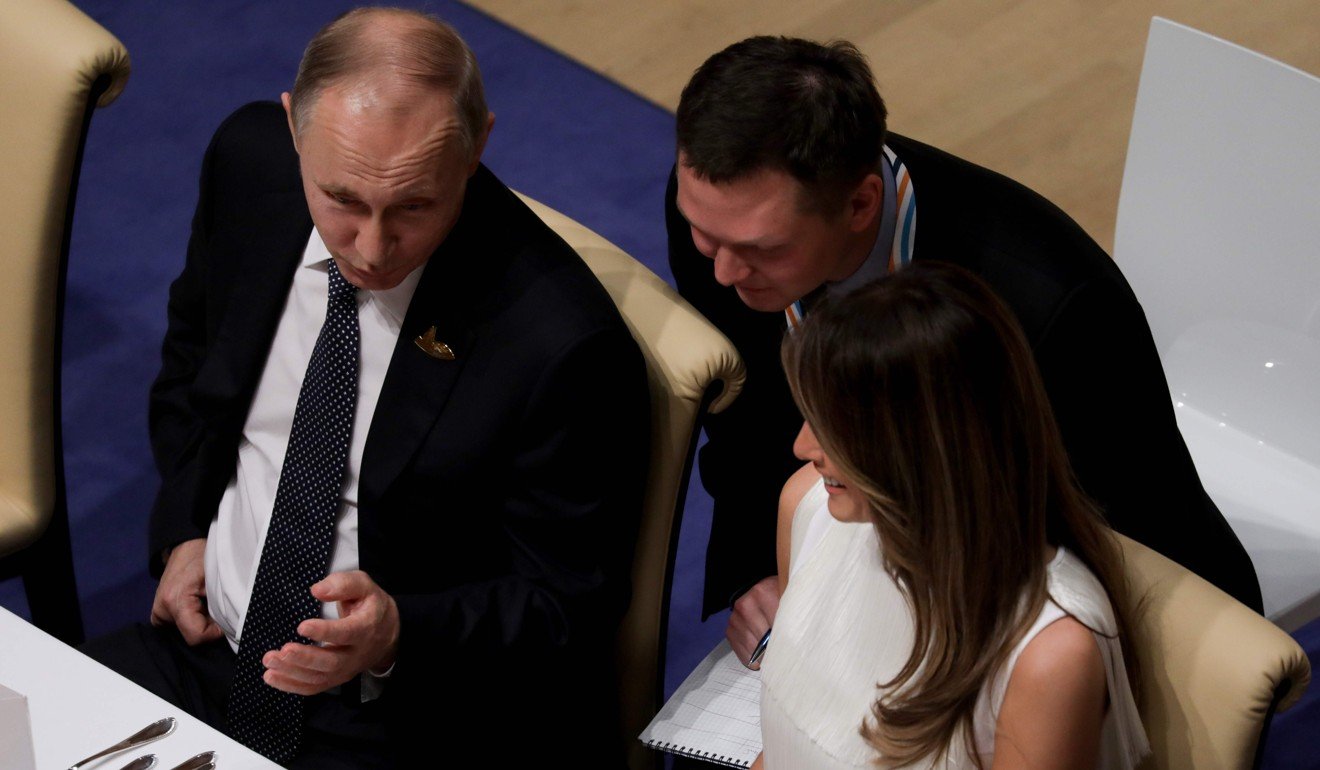
Trump backtracks after idea to team up with Russia on cybersecurity is ridiculed
‘It’s not the dumbest idea I’ve ever heard, but it’s pretty close’: Republican Senator Lindsey Graham
US President Donald Trump has backtracked on his apparent endorsement of a proposed partnership with Russia on cybersecurity, after it drew withering reviews from lawmakers, including several from his own party.
In a confusing reversal on Sunday evening, Trump said that although he had discussed a joint cybersecurity unit at his G20 meeting with Russian President Vladimir Putin, such a project “can’t” happen. That was in spite of having touted a joint “impenetrable Cyber Security unit” in a tweet Sunday morning, so that “election hacking” would be “guarded”.
But on Sunday, after being rebuked by Republicans and Democrats alike, Trump tweeted anew:
“The fact that President Putin and I discussed a Cyber Security unit doesn’t mean I think it can happen. It can’t-but a [Syrian] ceasefire can,& did!”
Trump’s aides meanwhile struggled to answer questions about how hard Trump pressed Putin on Moscow’s meddling in last year’s US presidential election.
Trump’s encounter with Putin on the sidelines of the G20 economic summit in Hamburg, Germany, Friday was his first meeting as president with the Russian leader. It came after months of controversy over Russian meddling and whether anyone close to Trump’s campaign had colluded in it.
The White House has sought to portray Trump’s trip to Germany and a stopover beforehand in Poland as a solid success, despite a striking degree of US isolation over climate change and trade at the G20 gathering.

Almost as soon as the Trump-Putin talks ended on Friday, the Russians embarked on a public-relations offensive. With the US side staying out of camera range, Russia’s Foreign Minister Sergey Lavrov said Trump had accepted Putin’s denial of interference in the election.
Putin said later that Trump had seemed “satisfied” with his protestations of innocence.
The Trump administration presented its own version, via Secretary of State Rex Tillerson. He said the president had repeatedly raised the issue of meddling with Putin and the two sides had agreed it was time to move on to other and more pressing issues.
Trump said on Twitter on Sunday that he had “strongly pressed” Putin over election interference and that the Russian leader “vehemently denied it”.
White House officials said Sunday that Trump did not believe Putin’s denials, though neither he nor aides have described him pushing back against them at the time.
“The president absolutely did not believe the denial of President Putin,” Reince Priebus, Trump’s chief of staff, said on Fox News Sunday.
Trump himself avoided that point, saying only: “I’ve already given my opinion.”
I am sure that Vladimir Putin could be of enormous assistance to that effort, since he’s doing the hacking
As recently as Thursday, Trump expressed doubts about whether Russia had interfered in the election, remarking in a news conference in Warsaw that “I think it could very well have been Russia, but I think it could well have been other countries.”
“Nobody really knows for sure,” he said.
Rather than repeat those doubts, Trump’s Twitter posts touted his talk with Putin about creating an “impenetrable Cyber Security unit” to combat abuses like hacking and online propaganda.
That prospect that left some leading Republicans scarcely able to contain their disbelief.
“It’s not the dumbest idea I’ve ever heard, but it’s pretty close,” said Republican Senator Lindsey Graham. He called Trump’s talks with Putin “disastrous”.
“When it comes to Russia, he’s got a blind spot,” Graham said on NBC’s Meet the Press.
Republican Senator John McCain, a prominent Russia hawk, was asked on CBS’s Face the Nation whether Russia was really likely to provide any help in combating election interference.
“I am sure that Vladimir Putin could be of enormous assistance to that effort, since he’s doing the hacking.”
Another Republican senator, Marco Rubio of Florida – who, like Graham, had been an early candidate for the Republican presidential nomination – said on Twitter that teaming up with Putin to safeguard elections would be like partnering with Syria’s President Bashar al-Assad, who has carried out repeated strikes against his own people with chemical weapons.
Trump surrogates, though, defended the plan as a worthy effort to bring Russia into the fold.
“This is about having the capabilities to make sure that we both fight cyber [interference] together, which I think is a very significant accomplishment for President Trump,” Treasury Secretary Steve Mnuchin said on ABC’s This Week.
But that was before Trump’s “can’t happen” tweet.
Unsurprisingly, Democratic lawmakers and former Obama administration officials found little to praise about the proposal.
“We might as well just mail our ballot boxes to Moscow,” said Representative Adam Schiff said on CNN’s State of the Union. Schiff, a former prosecutor, is the senior Democrat on the House Intelligence Committee.

